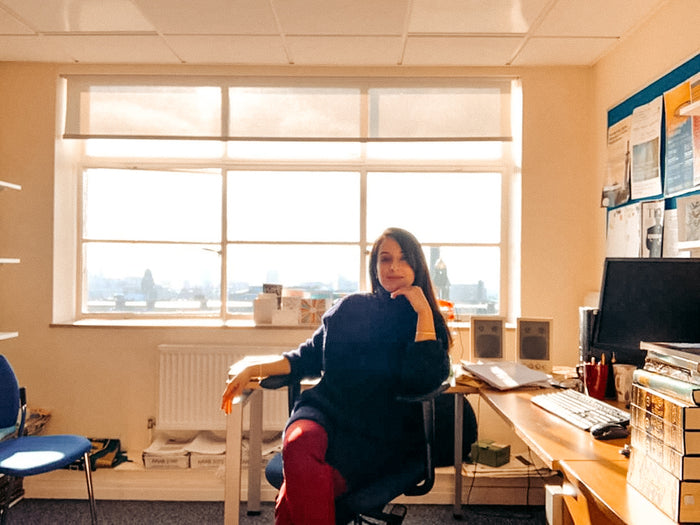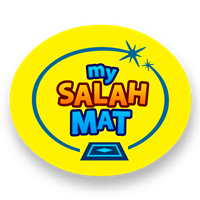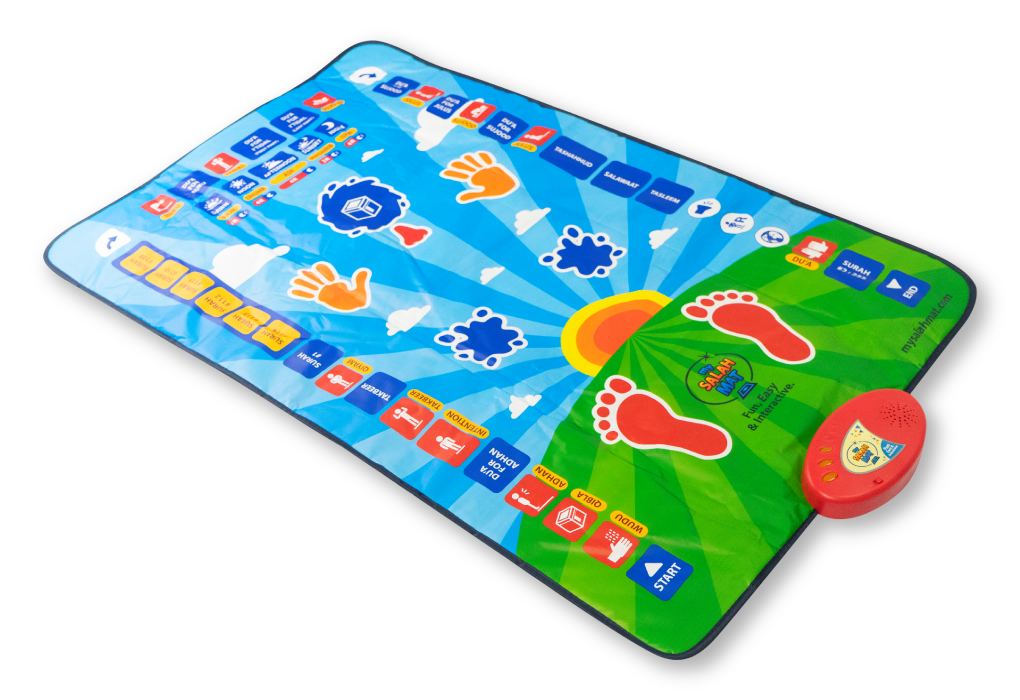Meet Dr Sofia Rehman! A PHD graduate focussing on female voices within Islam

Meet Dr Sofia Rehman! Dr Rehan is a UK born academic researcher specialising in the study of Islam. Alhamdulillah Dr Rehan has travelled to many parts of the world including Syria and Turkey to further her knowledge in the Deen.
On her instagram account she has built a community who share a love for books, Masha'Allah the page is now at 13,000 followers and growing.
We got in touch with Dr Sofia Rehman to know more about her story and practices...
- Could you please introduce yourself - your name, current profession and what your hobbies and interests are?
My name is Sofia Rehman, I am an academic researcher specialising in the study of Islam with a particular focus on Hadith and gender justice. My hobbies include reading, writing, long hikes and working out, cooking, and spending time with friends and family.
- I read that you travelled to Syria, Wales, and Turkey. How did these travels influence your current profession?
After I graduated from my undergraduate degree in Business Management, I felt free to finally commit to where my passion lay and that was the study of Islam. Alhamdulilah I married my husband who had already been studying in Damascus and had ambitions for himself and his wife to continue to pursue Islamic knowledge. So, for the first few years of our marriage we travelled in pursuit of our Islamic education and though we both knew this is what we wanted to commit our lives to we hadn’t envisaged that we would end up in academia. When we finally came back to the UK my husband got a job at a University, and I took time out to be with my children and engaged in community teaching. When my youngest started school, I went back to university and pursued my MA in Middle Eastern and Islamic Studies. Whilst it’s not essential to have traditional training in Islamic studies to take it up at university, I have found it an indispensable foundation to my learning and knowledge production. As such then my travels were essential to my professional development, though at the time that wasn’t the intention. The intention had always been for my own personal development and pursuit of knowing Allah and Their Deen better. But as we know, we plan and Allah Plans!
The intention had always been for my own personal development and pursuit of knowing Allah and Their Deen better. But as we know, we plan and Allah Plans!
- Your travels around the world inspired your passions, did becoming a mother have a similar effect?
Absolutely 100% having children had a similarly positive impact. Being born and brought up in the West there is a tendency to regard children as being both a blessing and a curse; a blessing in the sense that they are one’s offspring and naturally one loves them, but a curse too because they hold us back, particularly mothers. However, when I was in Syria I met so many mothers from around the world all studying at various levels at the same institute as me. They supported each other and the teachers were so encouraging and accommodating too. It was the first-time motherhood was modelled as a catalyst towards our goals and not a hindrance. Each child was seen as bringing its own rizq with it, which sadly we only think of as financial provision, but it includes all sorts of provisions including our spiritual sustenance.
This had a profound impact on the way I saw having children, and though it has been challenging to study and work whilst having children and I have at times had to take things slower, my children are always a source of inspiration. And if it is difficult for me to pursue my goals, whatever they may be, it is not because of my children, but because of society’s inability to value motherhood and support us. I want my children to look at their mother and see a woman who has done her best for Allah, for her family and for her community, who didn’t allow limits to be enforced upon her and set her sights on goals and then went for them, so that along with all the flaws that they will also undoubtedly witness in me, they’ll be able to say they had a mum who took the life she was given and gave it her best shot insha’Allah.
- What is one piece of advice you would give to other mothers? Perhaps new mothers?
This is so cliched, but I would honestly say cherish the moments when your children are little because though the days are long the years are short. The seemingly endless night feeds and nappy changes do end, the teething, the clinginess, the tantrums, they all end, so enjoy the snuggles, the laughs, the desire to be near you all the time because you will long for them when they’re gone. But also, enjoy every single stage, because each stage is precious and short-lived, not just the baby days! And I’d also say TRUST YOUR INSTINCT. You know just what to and when to do it for you child. Listen to advice, but don’t let anyone’s judgement corrode your confidence.
And I’d also say TRUST YOUR INSTINCT. You know just what to and when to do it for you child. Listen to advice, but don’t let anyone’s judgement corrode your confidence.
- I read that a certain book influenced your PHD topic, could you tell us more about that book and how you came across it?
Yes, when I arrived in Damascus my Arabic was still fairly entry level. I’d done a year of Arabic as a discovery module as part of my degree, and attended numerous short-courses wherever I could, but I was far from fluent when I got to Syria. My husband on the other hand was fluent and was quite advanced in his Islamic studies. We would visit various book shops regularly and I would mainly just stand wide eyed in awe of all these works my husband would excitedly point out and introduce to me. On one such trip to a Damascene bookshop, he spotted a book by the 14th century scholar, Imam Badr al-Din al-Zarkashi entitled al-Ijaba li Iradi ma Istadraktahu Aisha ‘ala al-Sahabah, The Corrective: Aisha’s Rectification of the Companions. It’s a compilation of over 200 hadith, statements in which Aisha is correcting, corroborating or outright rejecting statements made by Companions which they were attributing to the Prophet (SAW). Allah bless my husband, he picked that book off the shelf and said to me, “one day, you’re going to translate this book into English insha’Allah”. 15 years later I received my PhD for my translation and critical study of this very text alhamdulilah, and all tawfeeq is from Allah.

Dr Sofia Rehans PHD Paper.
- What struggles did you face on your journey of pursuing your PHD while being a mother?
As I mentioned above, it wasn’t easy but PhDs are difficult with or without children! Firstly, because my children have only ever known their parents to be teaching or learning, it wasn’t too much of a difference to them. The only thing they had to be more alert to was ensuring they were organised for school each day because I couldn’t be available for them to have teachers ringing me to drop off forgotten lunch boxes and PE bags! But that levelling up in organisation had to be met by my husband and me too. I had to be very organised and disciplined about my time.
Secondly, I had a very good support unit. My husband, as you will recall put that book in my hands and set that objective, but he’s not a man of empty gestures and hollow words, alhamdulilah. The years between that moment and the year in which I got my PhD were full of his support and investment in me, as I did for him when he pursued his PhD. I also had my friends who would step in to babysit, or cook meals, friends who would insist on brunches or dinners out so that I’d get a break too, who would cheer me on and hold space for me when it got hard, because it certainly did particularly towards the end! And of course, my parents, especially my mother. They live in a different city, but my mum has always been so inventive in finding ways to help. She’d find ways to ensure my freezer was filled with home-cooked meals, and when we would be visiting both my mum and brother would make sure my children were occupied so I could make the most of my time whilst visiting them. I am also convinced that my parents’ du’as are what granted me ease on this journey, as in all my other endeavours.
- I can see you run an Islam and Feminism critical reading group? Could you tell us more about this please and how it came about?
My biggest bugbear when I became more familiar with scholarship by Muslim women like Fatima Mernissi, Asma Barlas, Ziba Mirr-Hosseini etc etc was that so much of what I read by them and others wasn’t new. Many of them had been writing since before I was born or when I was just a baby! But their works were unknown to us Muslims who had the most gain from access to their work, which remained burrowed away in the ivory tower of academia. This feeling only intensified as I pursued my MA and then my PhD. In my final year of the PhD, I approached The Iqbal Centre at the University of Leeds with a proposal to set up an Islam and Feminism Critical Reading Group that would bridge the gap between academia and the local community by inviting people from all backgrounds in and out of academia to take part. The Iqbal Centre accepted and we spent 9 months reading a different text relating to the issue of Islam and women and would meet monthly for discussion. The reading group became so much more than a reading group! It became a confessional, group therapy, and a space for education and consciousness raising. It was a pleasure and a privilege to have run it.
- You've amassed a lot of knowledge about your faith in your travels - How do you plan to pass this onto your child?
There is nothing quite like teaching by example, and anyone who is a parent will be able to attest to the fact that children learn from what we do far more than what we say, so I hope that the primary way in which our children learn from us, is from our example. Alongside that, and despite what I just said, we do talk, A LOT. When the children were younger we did a lot of creative projects, arts and crafts etc to teach them about Islam and I would post du’as around the house for them to be prompted to say them as and when they were required, but as they’ve gotten older, its more through conversations. They are inquisitive and ask lots of questions, they know a lot more about differing opinions in Islam than even adults do on certain topics because we insist on keeping the children curious. One example is one summer my son learned how to play chess and was really enthusiastic about the game.
He was thrilled to find out that a chess club was being set up at school, until the only other Muslim boy in his class announced, “chess is haram!”. My son, who was 8 years old at the time, came home completely incredulous at the other boy’s claim. I knew there was difference of opinion on this. I also knew I could just tell him that, but I wanted him to know the joy of going in search of answers. So, we sat down and researched the issue of chess in Islam together and he was able to find that yes there were indeed scholars who’d considered chess haram, but there were also those who had not considered it so. My son even wrote a one-page essay for the boy in his class so that he could be informed on the matter. Both of them signed up to chess club. I think it’s so important that our children feel empowered through their faith, and engage as active agents which is what a Muslim is linguistically, someone who is actively engaged in the process of surrender to Allah, and this can only be done by one who has agency over their choices.
- What advice do you have for other mums who are teaching their children to pray?
As above, this has to be done by example. If children see their parents praying, they too will be inclined towards it. We make sure to pray at least one Salah together as a family, giving the children lots of praise for their good deed. Outside of that, I think the most important thing we can do is to encourage love for Allah in our children. I always felt that the key to my parent’s success in ensuring my brother and I developed our own connection to the Deen, was in their constant linking back to how much Allah loved us. Whether we were attaining academically or sitting to eat our favourite foods, my mother was a constant of echo of “see how much Allah loves us”. When you hear of Allah’s love for you as a child, there is nothing greater to nourish the heart and to encourage connection. Even as adults, if someone speaks to us lovingly, we are putty in their hands! I have found that doing the same for my children is important, because if they feel loved by Allah, they reciprocate that love and part of that is inclining towards the Salah because that is our connection, our direct line to Allah.
We are fortunate that we live in a time when Islamic educational resources for children are available to us, and I would have loved it if the My Salah Mat had been known to me when I was teaching my children to pray as even though they knew to pray by the time we got one, having it really excited them and inspired them to pray, and I have been telling all my friends about it since I received mine!
Thank you so much for taking the time to answer our questions. I can't wait to see what's next for you! Insha'Allah..
Heres some finals words by Dr Sofia
Here’s to another year of varied reads, lively bookish conversations and friendship ✨
Insha'Allah sister!
Dr Sofias Instagram : https://www.instagram.com/sofia_reading/














 Liquid error (snippets/@AlternatingContentX line 127): Could not find asset snippets/CustomTexts-.liquid
Liquid error (snippets/@AlternatingContentX line 127): Could not find asset snippets/CustomTexts-.liquid